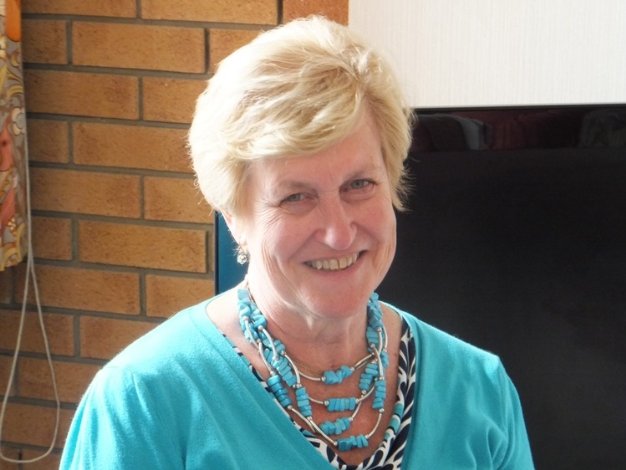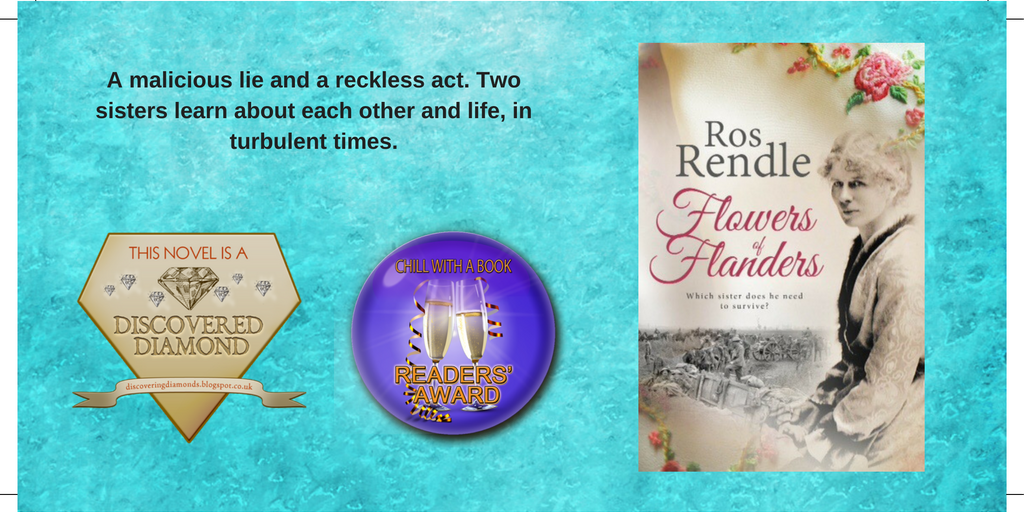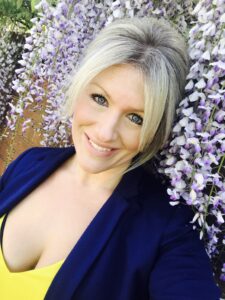Ros Rendle: Writing Historical Romance
14 December 2018
Earlier in the year we were short on the ground for historical romance authors on the blog, so I put a call out to those amongst our members experienced in this genre. We have had some great interviews over 2018 and I am pleased to end the year with the experienced historical romance author, Ros Rendle.
Thank you so much for this great opportunity. I hope readers find it interesting.

All of your novels are focused in the early 20thCentury, around the World Wars. Why did you decide on that period in history to set your novels?
When I started the series, we lived in northern France. We were there for eleven years. As members of the Pas de Calais Royal British Legion branch we visited many of the WW1 historical sites regularly and even attended re-burials of soldiers who were rediscovered during building work. This is both fascinating and emotionally engaging, especially when descendants are present, having been traced through DNA investigations. My grandfather is mention in War Diaries which we researched at the National Records Office at Kew. He was in France for the first day of the Battle of the Somme which further encouraged an interest in research. I was able to go back to France and walk in his exact footsteps as he was attached to the HQ as an officer scout. The subsequent novels were a natural progression as people were asking what happened to the characters.
What comes first for you, when a novel idea strikes; setting or character?
Characters definitely come first but setting soon follows because frequently it’s a situation observed or heard about which kindles the initial spark. Often the character and the setting are very closely inter-twined, and one influences the other very quickly.

Three of your novels are a series, The Strong Sisters. Could you tell us a little about the inspiration behind these, and the characters linking the stories?
The lady on the front cover of the initial book is an image of my grandmother and although it truly is not her story, she was the inspiration for the character, possessing much of the understanding and forgiving personality I have portrayed. The impetuous and lively sister, Delphi, with whom she struggles as a rival in the book, is an original, as is Michael who goes to fight in France.
I’m very pleased to have won several readers’ awards for each in this series.
I understand your next novel is to be set during the Cold War; something which sounds both a little daring and exciting to me. How difficult is it to write about a period of history, of which many aspects are so secret and how have you gone about researching this period of time?
Research for ‘Flowers of Resistance’ was very tricky as neighbours in France were reluctant to speak of that time and there is little on the internet. Information for the Cold War, necessary for ‘Flowers that Shattered Stones’ is more readily available, which is surprising.
It’s often the little things that bring a story authenticity, however. Larger aspects of history are often documented. I have managed to pick up little snippets of incidents that were real and have re-worked or embroidered them into a richer tapestry.
For example, In WW2 a local family were about to leave in the night when the Nazis came rolling into the village. Unlike Delphi’s family, who escaped into Vichy France, these people had to hastily back up the car and return to their home which was subsequently taken over and used as a headquarters for the planning of V1 and 2 sites. There are many ramps and disused site buildings in the area, often used now as chicken huts.
During the Cold War my relative went through Checkpoint Charlie once each year to visit a Jewish family who had returned to East Berlin after WW2. Research has enabled me to describe the process involved. I’ve done some serious trawling on the internet and visited the records’ offices in London.
Finally, what would your top tip be for any of our readership wanting to create an authentic atmosphere in their historical writing?
Research and more research. I try to be meticulous. Any inaccuracies, however obscure the fact, would be picked up by someone. The fine details are even more important than major events. Clothing, what people ate, how did they get around, maybe a reference to social media of the day, e.g. wireless, letter writing, telegrams etc. sprinkled sparingly will give a flavour of the era. I have far more detail than I used. I was wary of over-loading my story with a ton of information which would have been unnatural. I plan to use just enough to give the idea of time and place.
Thank you again, Ros, for a inspirational insight in writing historical romance and I wish you every success with your next novel, the Cold War certainly sounds like an atmospheric backdrop.

Bio
Ros Rendle was a head teacher in a previous life but when her husband took early retirement she did too, and they moved to France. She used to write policy documents, essays and stories to which young children enjoyed listening, but now she writes contemporary and historical fiction for adults – a much harder but more enjoyable task. She has two daughters and four granddaughters with whom she shares many heart-warming times. What with writing, and between dog walking and dancing, though not always at the same time, her hours are filled.
Her books can be found at Amazon
or via her website
You can find out more about Ros at:
or
*

Lisa Hill writes contemporary romance with a light-hearted tone. What interests her most is people, their interactions, emotions and relationships. It’s probably why her career to date has been based in property; she confesses herself that she is ‘naturally curious’. Her first encounter with a romance author was chats over the garden wall between her father, Godfrey, and Mrs Cooper from the neighbouring village of Bisley. It came as quite a surprise in later life to find that Mrs Cooper was in fact Jilly Cooper! Lisa’s writing inspiration now comes from other Cotswolds’ authors including Jill Mansell and Katie Fforde. Lisa’s latest novel, Heart in the Right Place, is out now with Manatee Books.



